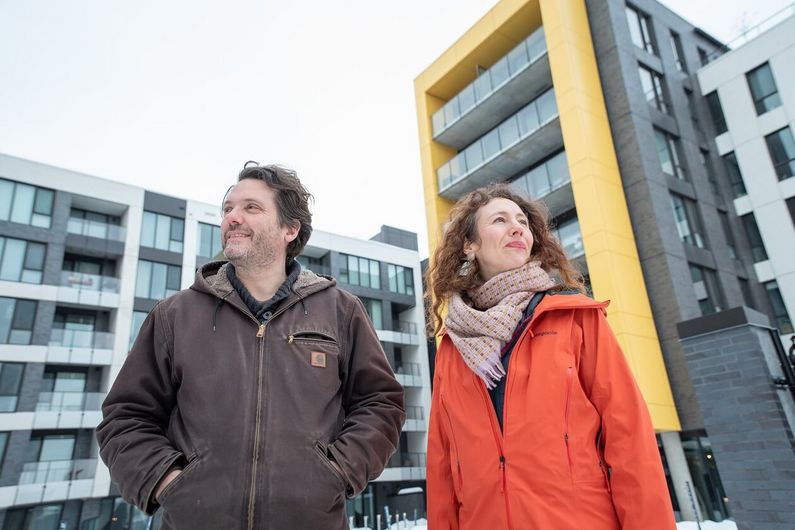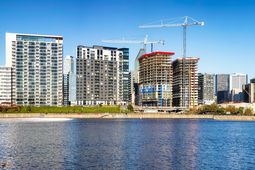Condos: status symbol or worrying sign of gentrification?
- UdeMNouvelles
02/17/2023
- Martin LaSalle
Some people have a negative emotional response to the proliferation of condos in the Montreal region - and an UdeM doctoral student says we should listen to them.
Whether or not you live in one, condominiums are a symbol of status and gentrification. For some people, living close to condos can make them feel annoyed, anxious, disappointed and pessimistic about the power dynamics at play in their neighbourhood.
These are the findings of a qualitative study conducted by Julie Karmann, a PhD student under the direction of professor Yan Kestens in the Department of Social and Preventive Medicine of the Université de Montréal’s School of Public Health.
Karmann's research project is part of a broader cohort study called INTERACT that examines the impact of urban change in four major Canadian cities, including Montreal, on 1,050 people. Through interview, the doctoral student explored the emotional response to such change on 32 residents of metropolitan Montreal aged 25 to 73, from October 2019 to January 2020.
'Seeing new families move in'
“Their positive feelings were excitement at seeing new families move in and enjoyment of the improved safety, increased economic growth and greater mobility,” said Karmann.
However, many respondents also admitted to having negative feelings—disappointment, annoyance, fear and pessimism— about how their neighbourhood was changing.
Their disappointment was mostly related to the prospect of seeing new developments encroach upon green or natural spaces and trouble getting around due to increased traffic caused by the influx of new residents and their vehicles.
“The interviews also showed that condos, as an ownership model, have a symbolic value,” said Kestens, Karmann's supervisor. “They are associated with the neighbourhood’s gentrification, creating anxiety over rent increases and a feeling of powerlessness in the face of the changes brought in by so-called predatory businesspeople.”
Added Karmann: “This feeling of powerlessness is very strongly felt by some people, who wonder if it’s no longer possible to fight the neoliberal transformation of the city. It's like a David and Goliath story.”
Emotions have repercussions
Both researchers believe this study highlights something that hasn't been examined much before: the role of emotions in the sense of well-being felt by city dwellers.
“A city is shaped more by the feelings of its residents than it is by its parks, buildings and services,” said Karmann. “Cities are built for people, and the emotions of the people who live in them have repercussions on their physical and mental health.”
Added Kestens: “There aren't many studies on well-being, mental health and urban living, and I don’t believe anyone has examined the emotional impact of urban change before."
He believes that community well-being is becoming a priority for municipal authorities, who have a major role to play in ensuring sustainable development and the fight against social inequality.
Although condos are often well-regarded for their ability to increase a city's density and improve its sustainability, the two researchers have observed that condos can also undermine the social component of sustainability and well-being.
They believe that decision-makers, researchers and society as a whole need to be aware of the social dynamics that condos create, in addition to their economic and architectural benefits. In other words, no matter how beautiful and prosperous a city may be, sustainability has a cost.
Almost 30 per cent of new housing
In a soon-to-be-published article in Emotion, Space and Society, Karmann cites authors who note that, like Toronto and Vancouver, Montreal is one of the leading condo markets in Canada: condos represent almost 30 per cent of all new housing built in the city since 1981.
These authors claim that rapid condo development is “driven by both a change in socio-demographic population trends and by market patterns, sustained by policies favourable to condo development and densification” to mitigate urban sprawl.
But the high number of condo construction projects brings changes that affect the perceptions of the people who live in the neighbourhoods targeted for this kind of development.
Asked about the arrival of condos in their neighbourhood, interviewees expressed emotions that were sometimes positive and sometimes negative, and ranged from enthusiasm to fear.














